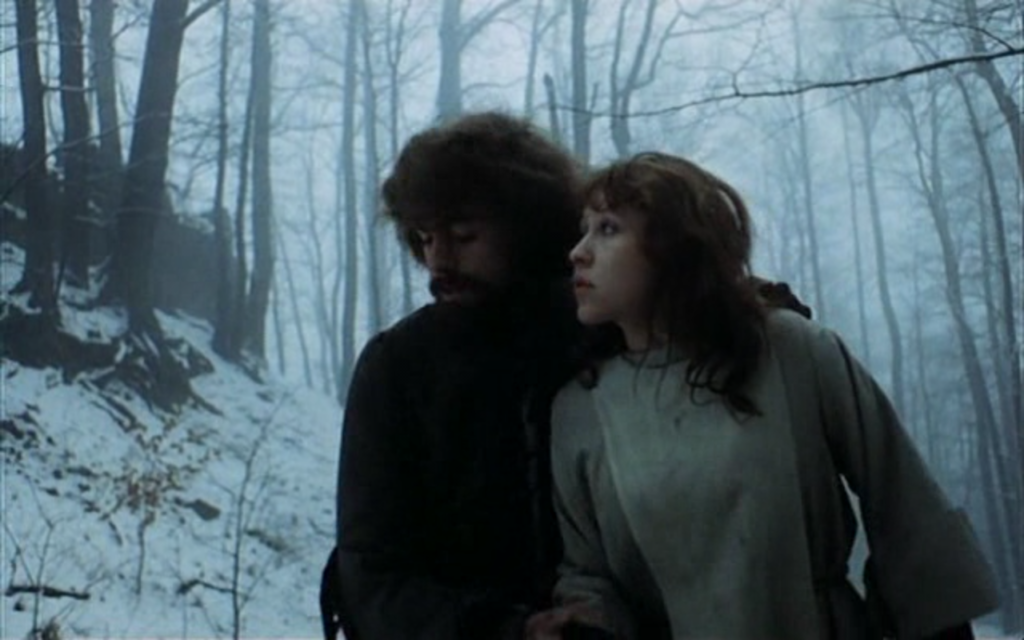
Hypocrisy, oppression, guilt, manipulation and rage are the constants in society as it is seen by filmmaker Andrzej Żuławski. These are also the traits which, traditionally, the Devil exploits in humanity. In Diabel (1972), the Devil of the title (played by Wojciech Pszoniak) is a clerk tasked with obtaining the names of noblemen suspected of conspiring to raise a resistance to the occupying Prussian forces. Żuławski imagines the Devil as a bureaucratic cog in the political machine that can only function via oppression, fear and violence.
In Diabel, the Devil frees a young revolutionary lord named Jakub (Leszek Teleszyński) from prison only to drive him mad. The Devil leads Jakub, accompanied by Sister Zakonnica (Monika Niemczyk) on an odyssey back to Jakub’s home. In a series of encounters, rendered as vignettes and punctuated by cuts to black as well as percussive music cues from Andrzej Korzyński’s score, the Devil slowly reveals to Jakub the inherent hypocrisy and cruelty of those societal constructs that Jakub initially went to war to protect.
In Jakub’s absence his father committed suicide, but only after prostituting Jakub’s betrothed and his own sister in attempts to bribe officials to free Jakub. Those conspirators who once aided Jakub have abandoned him, revealing their own moral corruption and self interest. Jakub’s estranged mother has also returned, bringing with her a court of prostitutes over whom she reigns as a benevolent madame. Jakub’s mother and his fellow noblemen are all autocrats in their own little spheres. The rapidity of these revelations send Jakub into violent fits and eventually drive him to kill.
Żuławski’s Diabel is overflowing with the director’s manic style of sweeping camera moves, breathtaking landscape compositions and utterly unhinged performances. Diabel, like so many of Żuławski’s films, is a story of the descent into madness. But in Diabel that narrative is allegorical. Jakub’s insanity comes as the cost to learning the truth; to seeing with one’s own eyes. Diabel is a film of political awakening whose anti-Soviet agenda cannot be disguised by supernatural genre trappings of Żuławski’s stylistic zest (Diabel was banned in Poland from 1972 until 1988 by the Soviet regime). As far as political parables go, few are as scathing as Diabel; which is probably Żuławski’s most explicitly political feature.
